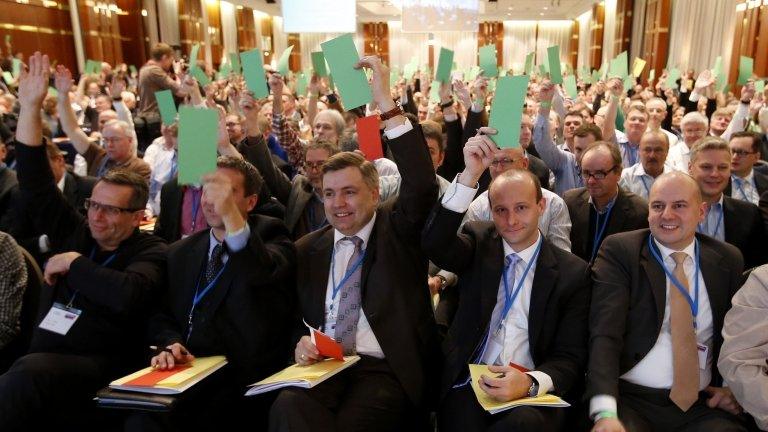German election: Opposition SPD faces daunting task
- Published
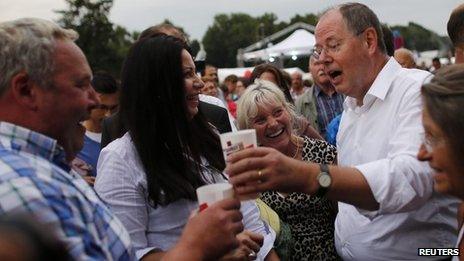
SPD supporters are campaigning more in hope than expectation
It is true to say that Germany's opposition Social Democratic Party (SPD) is not brimming over with confidence about the federal elections in a month's time.
When the SPD faithful celebrated the party's 150th anniversary at the weekend, it was hard to find anyone who thought they would emerge from the coming campaign as the party of government.
The trestle tables and impromptu bars were set up within sight of the Bundestag, but the party's stalwarts were celebrating past glory rather than forthcoming victory.
Miriam Riedel, who was looking after a stall set up by the left-wing of the party, said: "I hope the SPD is going to win the election. My dreams will come true".
Knut Labertin told the BBC he was pinning his hopes on the large number of people who he said remained undecided.
Some said outright they did not think they would win.
There was table football, skittles and a big wheel at the SPD celebration - but not much optimism about victory.
Tax obstacle
There are many obstacles to the party ousting Chancellor Angela Merkel but the main one is her own popularity.
On the latest figures, about two in three people eligible to vote prefer her to be chancellor of Germany over her rival in the SPD, Peer Steinbrueck. Only 29% think he would be the country's best leader.
This was reflected in the small talk at the SPD rally. The chatter was not of open discontent but rather of what should happen if Chancellor Merkel's conservative Christian Democrats (CDU) and its allies emerged as the strongest grouping in the Bundestag.
After the election of 2005, the CDU and SPD formed a left-right "grand coalition", with Mrs Merkel as chancellor and Mr Steinbrueck as finance minister.
The prevailing view among the activists this time is that this should be rejected - victory or opposition is what they want.
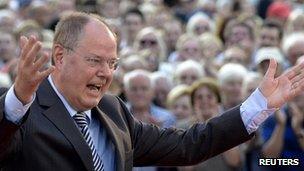
Peer Steinbrueck has rejected the idea of forming a grand coalition
They were echoing the view from on high. Peer Steinbrueck has ruled out participating in another grand coalition under Mrs Merkel. His ally, Frank-Walter Steinmeier, the leader of the SPD in parliament, is also thought to be sceptical about the possibility.
Of course, once the votes are in and the horse-trading begins, what was ruled out before may be ruled back in, particularly if the Free Democrats, who are currently the junior partners in the governing coalition, fail to get the 5% of the vote necessary to get any representation in the Bundestag at all.
But wheeling and dealing can only happen when the parties know their assets - and at the moment the SPD is not convinced it will have a strong hand to play.
As the SPD was celebrating its birthday, another festivity was taking place a couple of miles across Berlin.
In the grand park in Friedrichshain, gays and lesbians gathering for an afternoon of chatting and enjoying the sun were a target for politicians seeking votes. Where people gather so too do election campaigners.
At this event, the SPD and CDU agreed on what the election was about: tax rises. But they disagreed on the wisdom of them.
The SPD has pledged to raise the top rate from 42% to 49% and reintroduce a wealth tax.
Georg Haerpfer, who has been a member of the SPD for 30 years, said: "10% of the rich don't pay any tax. We need more tax. The rich are the ones who have to pay more."
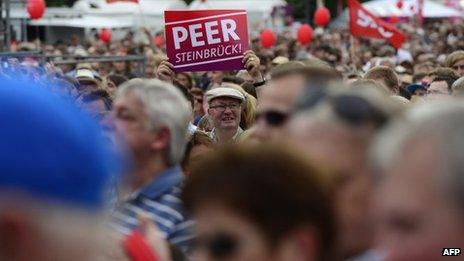
Does he think the SPD will win? "I hope so but I don't think so".
A party threatening to raise tax is a sitting duck for its opponents. Whatever you think of the rights or wrongs, higher taxes are a hard sell to an electorate worried about money.
Goetz Mueller, a candidate for the CDU in Berlin, said that raising taxes "threatens the economy and every single one of us".
He predicted that the German economy would start to do even better, generating extra tax revenue: "And with this... we can pay for schools so there's no need to raise taxes".
Risk averse
The polls indicate that economic matters are foremost in voters' minds - 57% are worried about wages and working conditions; 57% are worried about security in old age; and 17% are anxious about spying on internet traffic by the intelligence agencies.
In an atmosphere where voters are anxious about money, Chancellor Merkel is presenting herself as the steady figure of economic caution - the mother who keeps hold of the household finances.
"She's a tough lady and she knows what she wants," according to the CDU candidate, Goetz Mueller. "She has succeeded in the past and if the German people elect her she will continue with her good policies."
It is not the exciting stuff of vision and big pictures. But the indications are that the German people are not in a mood for risk - not ever, but certainly not now.
Few would bet against Angela Merkel being chancellor of Germany when the votes are in.
- Published23 August 2013
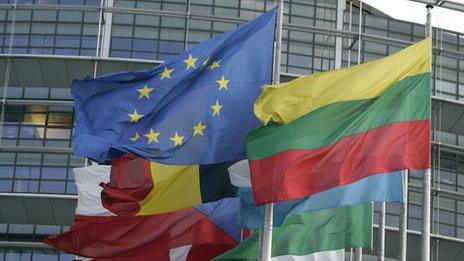
- Published20 August 2013
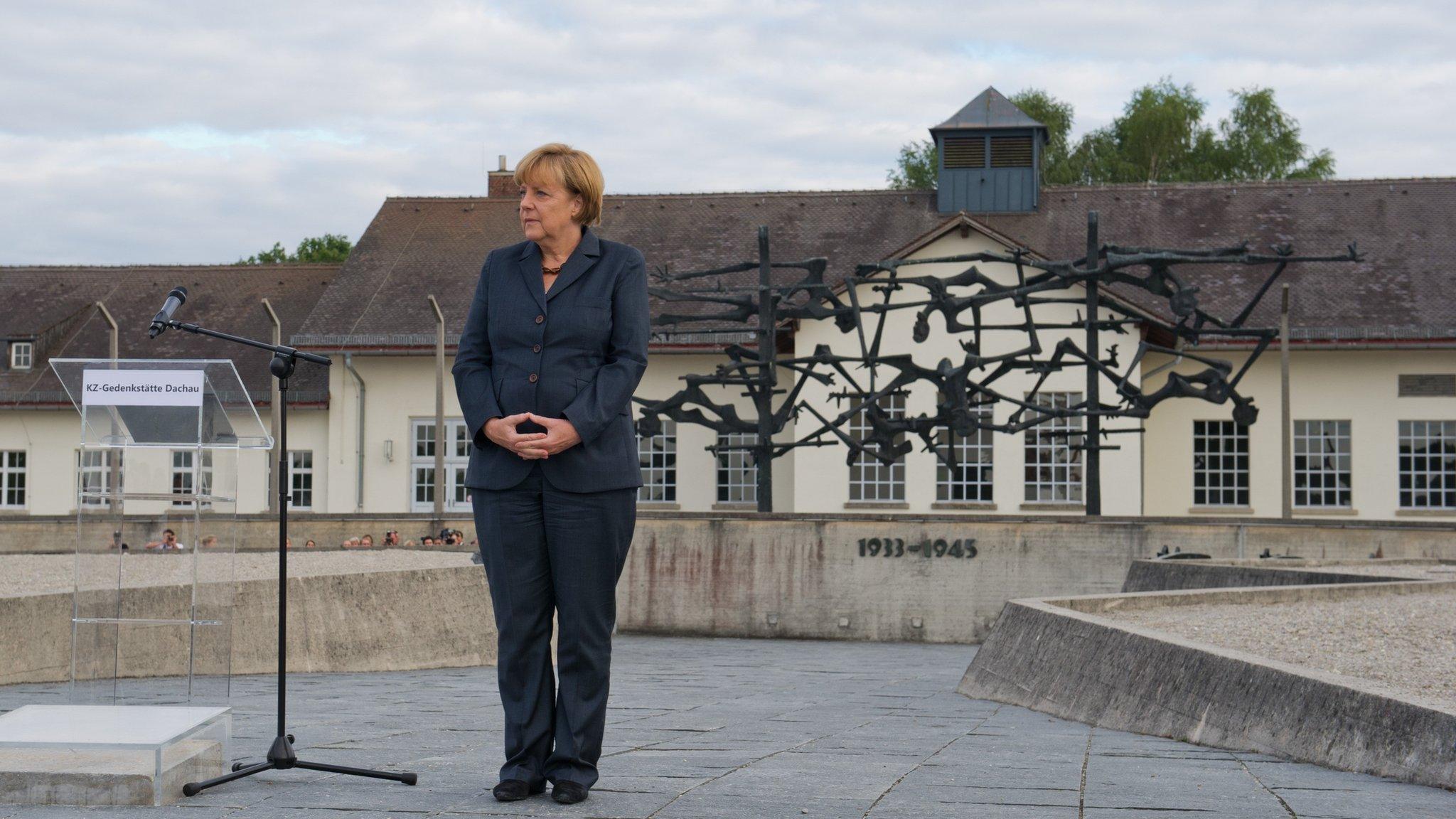
- Published14 August 2013
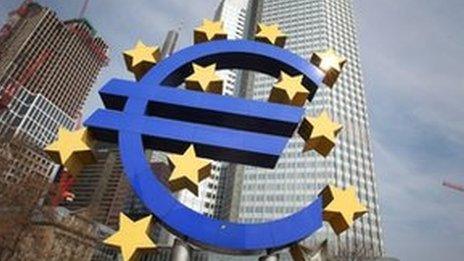
- Published15 August 2013
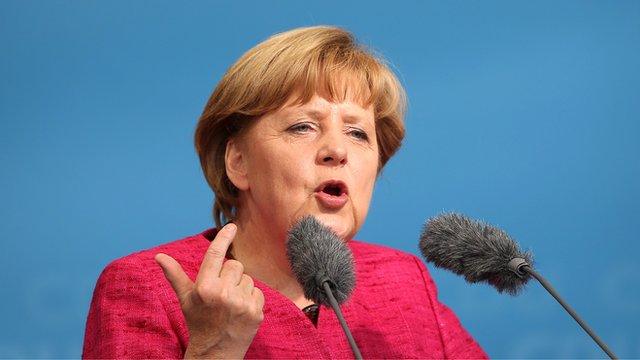
- Published3 June 2019
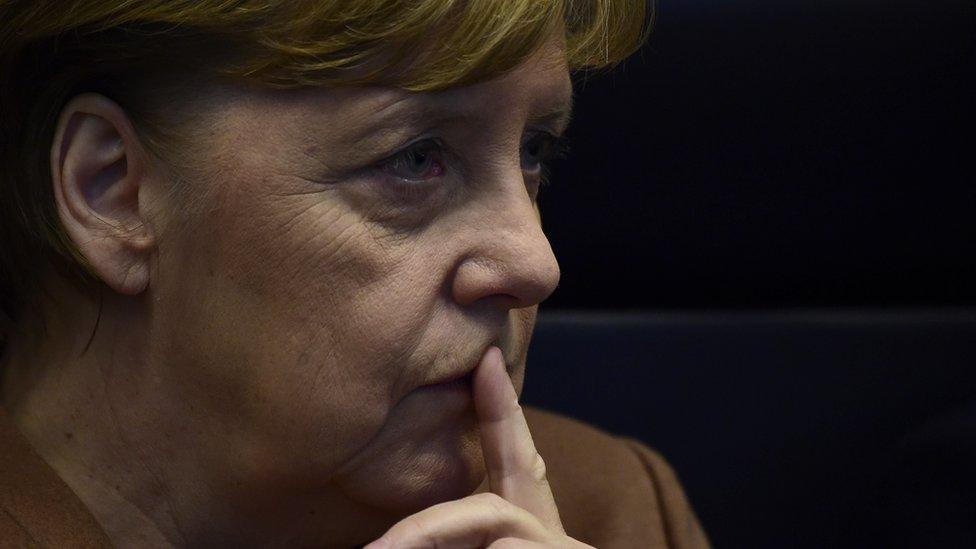
- Published21 January 2013
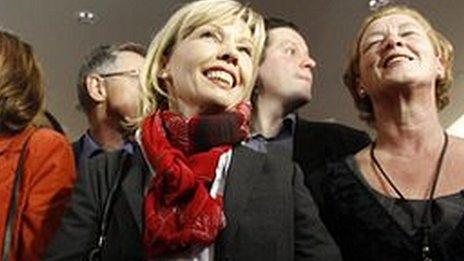
- Published14 April 2013
